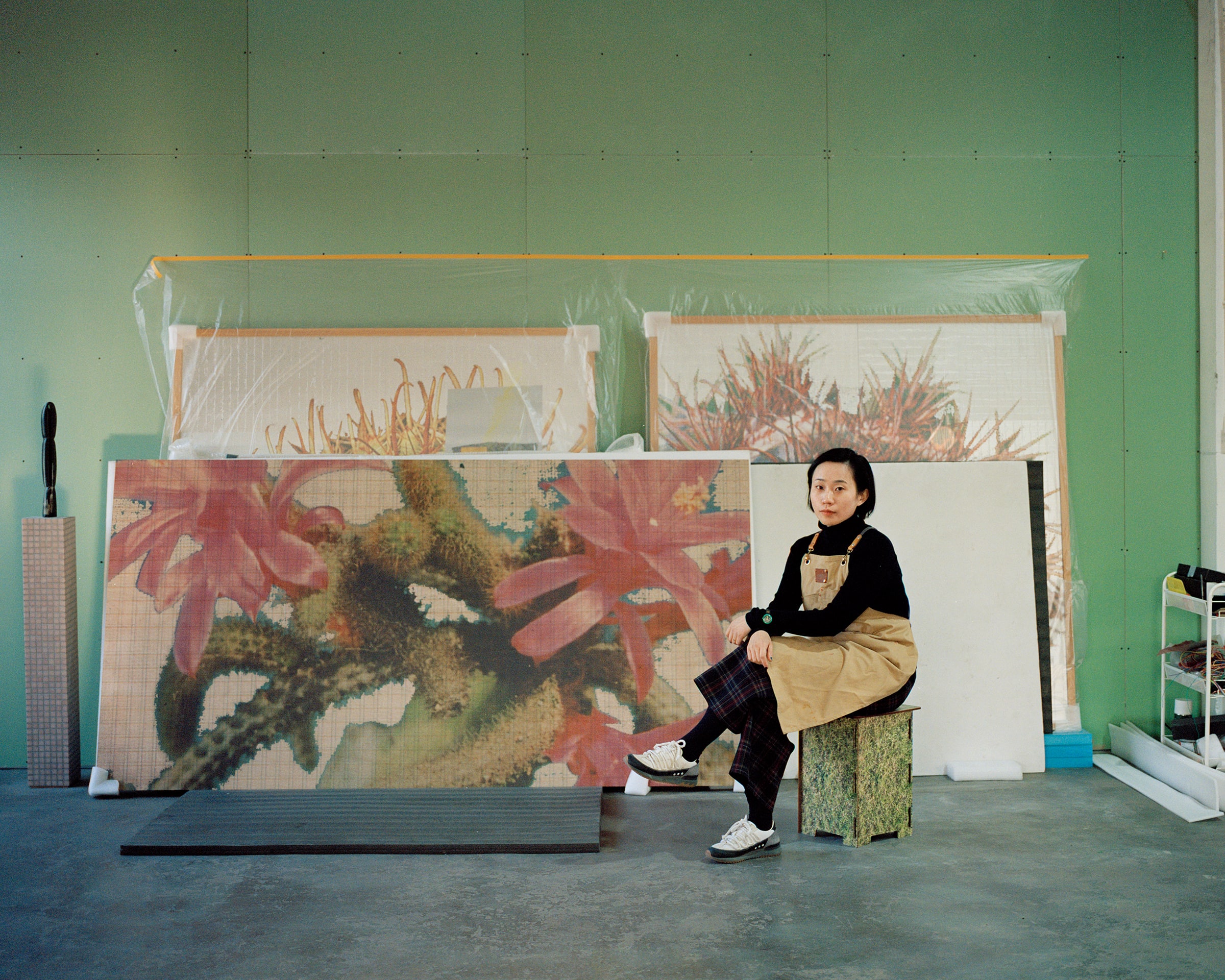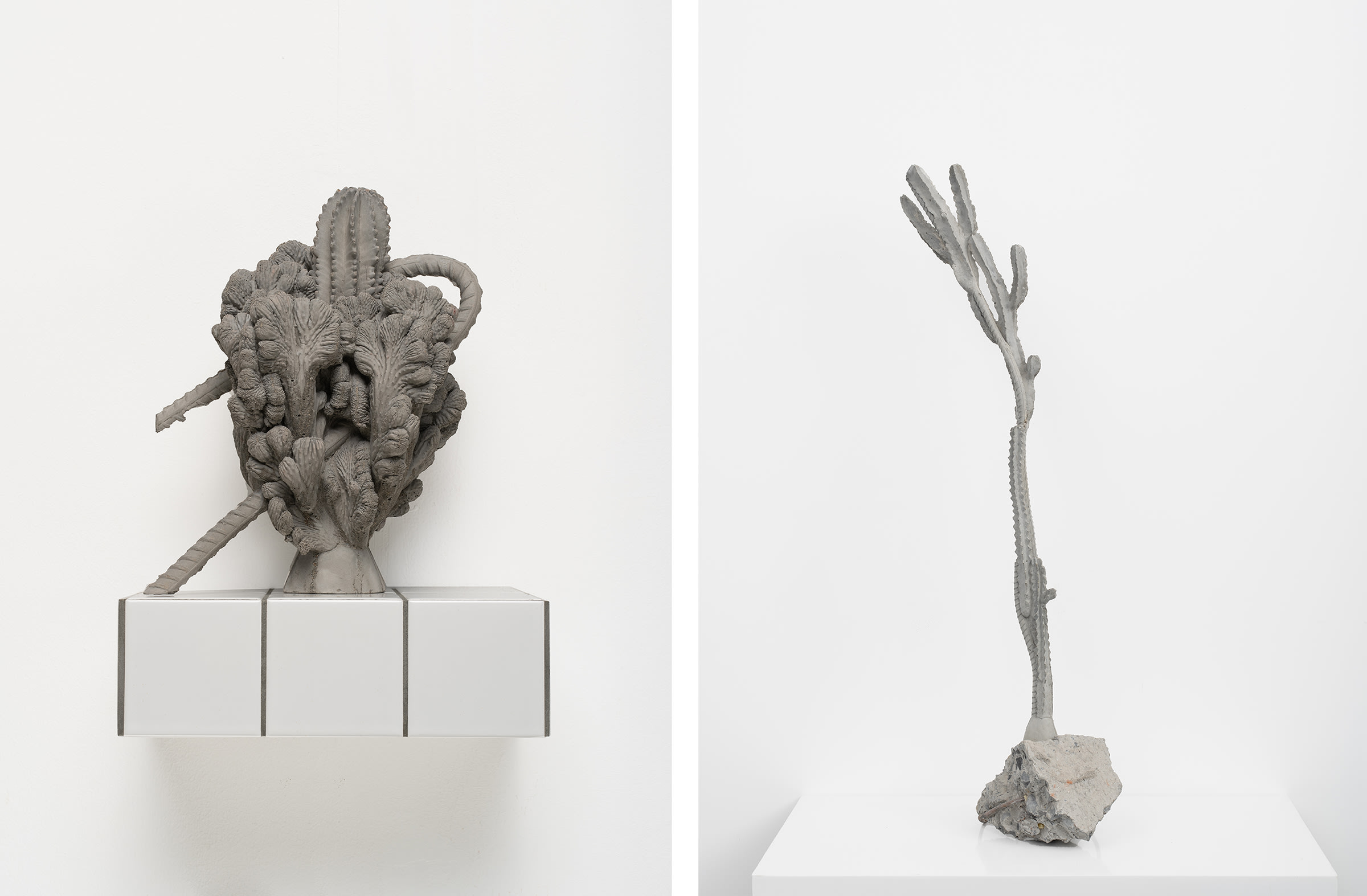Zhang Ruyi delves into the human psyche without ever showing so much as a glimpse of a person. Instead, she likes to reflect on the human condition through the lens of her urban surroundings. ‘For me, space is like a shell of abstraction,’ the artist explains in an email from Shanghai. The city where Zhang grew up, studied art, and now works figures heavily – if implicitly – in her practice. Her assembled objects and installations are based on cheap building materials ubiquitous in Asian cities: cement, tile, plastic film, graph and grid paper, as well as debris she finds at construction sites. In short, ‘the materials that shape our modern life, hidden beneath the surfaces of buildings.’

Zhang translates these materials into small collages, sculptures, and room-spanning installations, often using sleek, glossy grids of tile as pedestals, backdrops, or self-contained spaces. Take Decoration: Displacement (2018), a subway-station underpass meets communal shower, whose bright, sterile tile walls read as more sinister than safe. Her exhibition ‘Speaking Softly’, currently on view at UCCA Center for Contemporary Art in Beijing, illustrates how Zhang has shaped such recurring motifs and materials into a strong visual language over the past ten years. One mainstay of her vocabulary is the cactus, a plant she values for its ‘unique geometric shape, its paradoxical properties of being sharp on the outside but soft on the inside, and its extremely slow growth’ – characteristics that resonate with the metaphor of the self that is concealed in her works, says Zhang.

A sculpture might meld a stubby cactus with bent pipe fragments (Modern Fossil, 2022), or the sharp spines might take on a life of their own, sprouting like prickly hair from a piece of terrazzo (Island, 2017). At Art Basel Hong Kong, Matte Substance-11 (2020) renders a spindly specimen fused with architectural rebar in concrete. Seemingly growing from a boulder of debris – the ‘ruins of reality’ as Zhang describes construction sites – she finds the sculpture to be ‘full of contradictions and confrontations.’ Her approach of amalgamation allows, as she puts it, an exploration of ‘the hidden ecosystems between nature, the city, and individuals and their dark sides.’ For viewers, her work is full of fascinating frictions.
Zhang Ruyi is represented by Don Gallery, Shanghai. ‘Speaking Softly’ is on view at UCCA Center for Contemporary Art, Beijing, until April 9, 2023.
Kathrin Heinrich is an art historian and critic based in Vienna.
Published on March 14, 2023.
Captions for full-bleed images: 1. Detail from Zhang Ruyi's studio. Courtesy of the artist. 2. Zhang Ruyi, Decoration (Twilight) (detail), 2022. Courtesy of the artist and Don Gallery.


